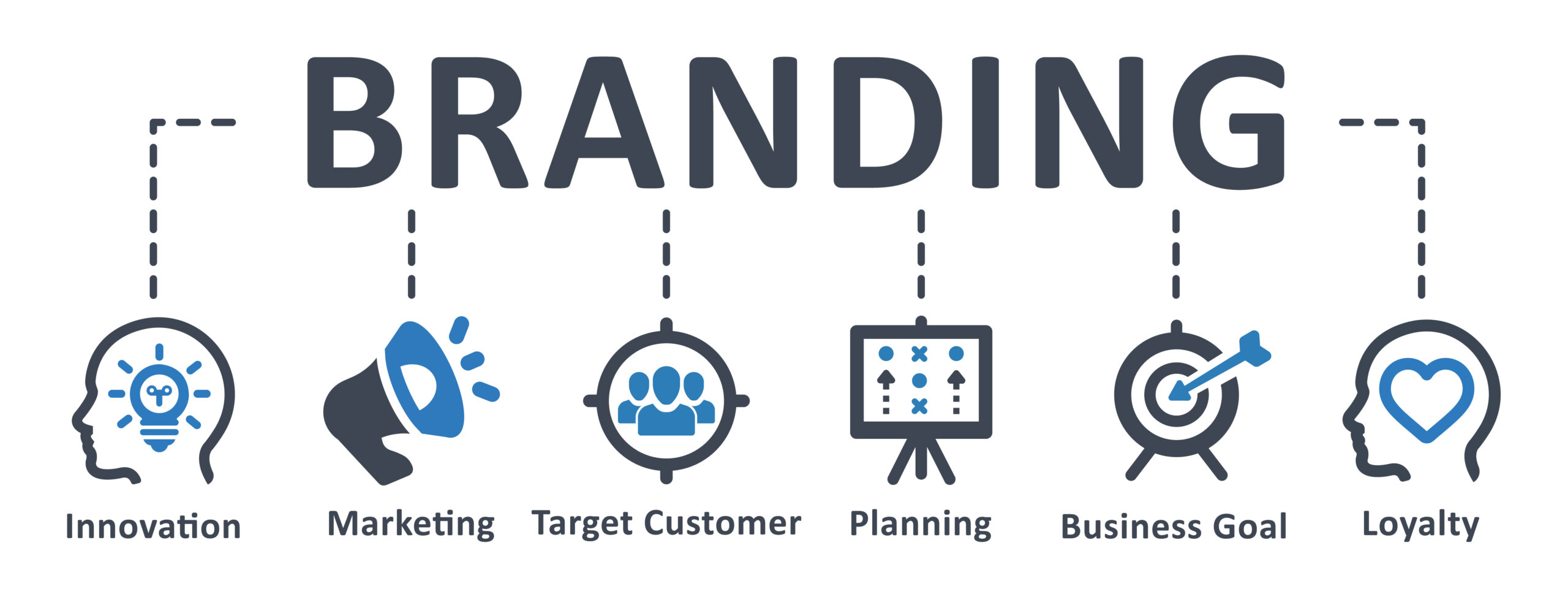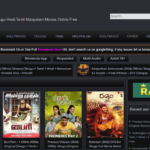The Crucial Role of Marketing in Building Your Brand: A Deep Dive into Brand Experience
- 1 Role of Marketing in Building A Brand
- 1.1 Building Brand Awareness
- 1.2 Establishing Brand Identity
- 1.3 Creating a Memorable Brand Experience
- 1.4 Fostering Customer Loyalty
- 1.5 Differentiating Your Brand in the Market
- 1.6 Adapting to Market Changes
- 1.7 Amplifying Brand Reach and Impact
- 1.8 Responding to Consumer Feedback and Trends
- 2 Future of Marketing In Building Brands
- 2.1 Data-Driven Personalization:
- 2.2 Embracing Artificial Intelligence and Automation:
- 2.3 Immersive Experiences through Augmented Reality (AR) and Virtual Reality (VR):
- 2.4 Social Media Evolution:
- 2.5 Purpose-Driven Marketing:
- 2.6 Ephemeral Content and FOMO Marketing:
- 3 Conclusion:
In today’s business world’s dynamic and competitive landscape, effective marketing is not just a tool but a strategic imperative. Whether you’re a startup or an established enterprise, the importance of marketing for your brand cannot be overstated. One key facet that demands attention is the creation of a compelling brand experience. In this blog, we’ll explore the multifaceted significance of marketing and delve into the crucial role that brand experience plays in shaping your brand identity.
Role of Marketing in Building A Brand
Building Brand Awareness
At the core of brand awareness lies marketing, serving as the linchpin that distinguishes your brand amidst a plethora of choices. A meticulously implemented marketing strategy guarantees the prominence of your brand. Utilizing diverse channels like social media, content marketing, and traditional advertising, you can generate excitement surrounding your products or services. By maintaining a unified and strategic message, you imprint your brand into the consciousness of your intended audience, enhancing the likelihood that they will recall and contemplate your offerings when faced with purchasing decisions.
Establishing Brand Identity
Your brand is not just a logo; it’s a living entity with its personality. Marketing provides the platform to communicate this identity to your audience. You can establish a unique brand identity that resonates with your target demographic through cohesive visual elements, messaging, and storytelling. This identity goes beyond products and services, creating an emotional connection that fosters customer loyalty.
Creating a Memorable Brand Experience
Underpinning the success of any brand is the experience it provides to its customers. Brand experience encompasses every interaction a customer has with your brand, from the first point of contact to post-purchase support. Marketing plays a pivotal role in shaping these experiences by crafting narratives that evoke emotions and align with your brand values. An exceptional brand experience not only leads to customer satisfaction but also turns customers into brand advocates. Collaborating with a specialized brand experience agency can elevate your marketing efforts by creating immersive and memorable interactions that resonate with your target audience.
Fostering Customer Loyalty
In an era where options abound, customer loyalty is a prized commodity. Marketing is the key to nurturing and maintaining this loyalty. By consistently delivering positive brand experiences, you build trust and loyalty among your customers. Additionally, well-planned marketing campaigns, loyalty programs, and personalized communication strengthen the bond between your brand and its audience, making customers more likely to choose your brand over competitors.
Differentiating Your Brand in the Market
In a crowded marketplace, differentiation is essential. Marketing enables you to highlight what sets your brand apart from the competition. Effective marketing communicates these differentiators to your target audience, whether it’s a unique value proposition, innovative features, or a commitment to sustainability. This not only attracts new customers but also reinforces your brand’s position in the market.
Adapting to Market Changes
The business landscape is dynamic, with market trends and consumer preferences constantly evolving. Marketing is the compass that guides your brand through these changes. By staying attuned to market dynamics, consumer behaviors, and emerging trends, you can adapt your marketing strategies to remain relevant and responsive to the needs of your audience.
Amplifying Brand Reach and Impact
Marketing acts as a powerful amplifier for your brand’s reach and impact. You can extend your brand’s influence to new markets and demographics through a well-crafted marketing strategy. Digital platforms, in particular, provide a global stage for your brand to connect with a diverse audience. By harnessing the reach of social media, search engines, and other online channels, you can expand your brand’s visibility and engage with potential customers on a global scale.
Responding to Consumer Feedback and Trends
Marketing is not a one-way street; it’s a dynamic conversation with your audience. Through social media, customer reviews, and feedback mechanisms, marketing allows your brand to listen and respond to consumer sentiments. This real-time interaction enables you to address concerns, capitalize on positive feedback, and stay attuned to emerging trends. By being responsive and adaptable, your brand can maintain a positive image and demonstrate a commitment to customer satisfaction.
In the grand tapestry of brand success, marketing is the thread that weaves together various elements into a cohesive and compelling narrative. Marketing guides the journey from the first spark of awareness to the enduring flame of customer loyalty. By placing a strategic emphasis on creating a memorable brand experience, you not only differentiate your brand but also forge lasting connections with your audience. In an ever-evolving business landscape, a holistic and adaptable marketing approach is beneficial and essential for building a brand that stands the test of time.
Future of Marketing In Building Brands
Data-Driven Personalization:
The future of marketing lies in harnessing the power of data to create personalized and targeted experiences for consumers. With the proliferation of data analytics and artificial intelligence, businesses can now gather and analyze vast amounts of information to understand consumer preferences, behaviors, and demographics. This allows for the creation of hyper-personalized campaigns that resonate with individual consumers, fostering a deeper connection between the brand and its audience.
Embracing Artificial Intelligence and Automation:
As technology continues to advance, artificial intelligence (AI) and automation will play an increasingly pivotal role in marketing strategies. AI can analyze consumer data in real time, predict trends, and automate routine tasks, enabling marketers to focus on more strategic aspects of brand building. Chatbots, for example, can enhance customer engagement by providing instant, personalized interactions, improving the overall brand experience.
Immersive Experiences through Augmented Reality (AR) and Virtual Reality (VR):
The future of marketing involves creating immersive brand experiences that go beyond traditional advertising. AR and VR technologies offer the potential to transport consumers into virtual worlds where they can interact with products or services more engagingly and memorably. Brands that embrace these technologies can differentiate themselves by offering innovative and immersive experiences that leave a lasting impression on consumers.
Also Read – Difference Between Brand Reputation Management And Brand Safety
Social Media Evolution:
Social media remains a powerful tool for brand building, but its landscape is continually evolving. Video content, live streaming, and ephemeral content are becoming increasingly popular, requiring brands to adapt their strategies to stay relevant. Influencer marketing continues to be influential, and platforms like TikTok are gaining prominence. Brands that understand and navigate the evolving social media landscape will be better positioned to connect with their target audiences.
Purpose-Driven Marketing:
Consumers are increasingly seeking brands that align with their values and contribute to social and environmental causes. Building a brand with a strong purpose goes beyond the product or service itself; it involves actively contributing to a greater societal good. Brands that demonstrate authenticity and a commitment to social responsibility are likely to build stronger connections with consumers who value purpose-driven initiatives.
Ephemeral Content and FOMO Marketing:
The rise of ephemeral content, such as Stories on platforms like Instagram and Snapchat, has created new opportunities for brands to leverage the fear of missing out (FOMO). Creating limited-time offers, exclusive content, or behind-the-scenes glimpses can generate excitement and urgency among consumers. This form of marketing taps into the psychology of immediacy and can be a powerful tool for building brand awareness and loyalty.
Conclusion:
In the fast-paced and dynamic world of marketing, the future belongs to those who can adapt and innovate. Building a brand requires a strategic approach that embraces technology, understands evolving consumer behaviors, and aligns with societal values. By harnessing the power of data, leveraging emerging technologies, and staying attuned to cultural shifts, businesses can position themselves for success in the ever-evolving landscape of marketing. The future is bright for those who are willing to embrace change and lead the way in building brands that resonate with the consumers of tomorrow.


















